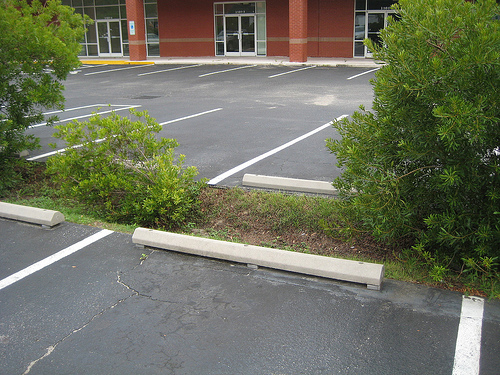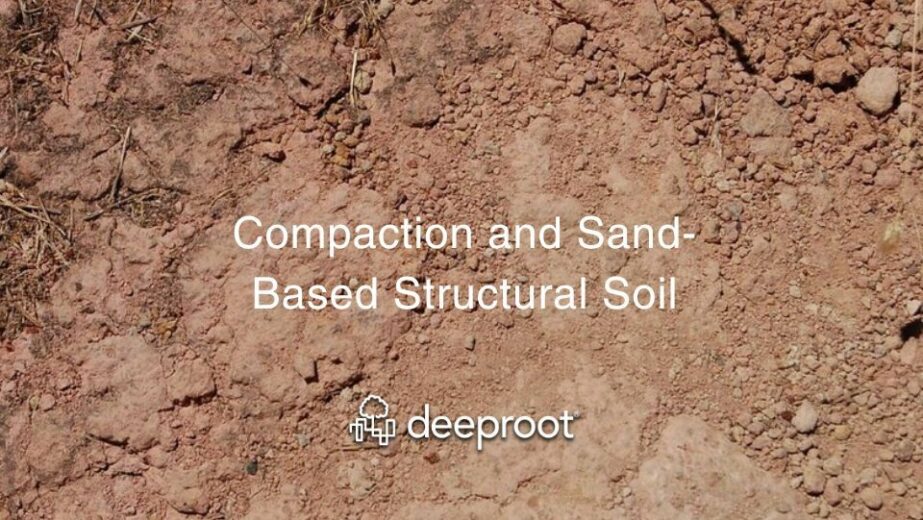Research to date has shown that bioretention can be effective for water quality treatment and for preserving the pre-development hydrologic function of a site, but what happens when air temperatures dip below freezing? Studies indicates that with proper design and maintenance, bioretention can function well even in cold climates.
Findings from study of bioretention during three Minnesota winters (Davidson et al 2008, LeFevre et al 2009), for example, found that “Three of the four studied bioretention cells remained hydrologically active during cold climate conditions most of the time. The fourth cell, although infiltrating some water, appeared limited in both warm and cold weather due to its poorly draining soils.”
Studies in other cold climate states have found similar results:
- “In a study of a rain garden in Connecticut, sized to contain a 25 mm storm, a flow mass balance indicated that less than 1% of inflow water overflowed over the two year period of study, despite measurable frost being present in the bioretention media during winter months (Dietz and Clausen, 2006 in TRCA 2009).”
- “Findings from studies of the performance of low impact development practices, including two types of bioretention systems at the University of New Hampshire indicate a high level of functionality during winter months and that frozen filter media has not been a concern (Roseen et al., 2009 in TRCA 2009).”
- “A study of a bioswale on a college campus in King City, Ontario also showed continuous infiltration throughout the winter, with soil temperatures at 50 cm below the soil surface never falling below freezing, despite air temperatures down to -25°C (TRCA, 2008 in TRCA 2009).”
While freezing temperatures can impact the performance of bioretention infiltration systems, studies have found that the difference between summer and winter performance of bioretention systems is not substantial, even on sites with severe winters (Roseen et al, 2009). In other words, bioretention systems that work well in warm conditions also function properly under freezing conditions (LeFevre et al 2009).
The type of frost seems to influence bioretention performance more than the mere presence or depth of frost (LeFevre et al 2009). When unsaturated soils reach freezing temperatures, infiltration rates can remain very high. However, when saturated soils reach freezing temperatures, infiltration becomes restricted. Based on these findings, the next blog in this series will discuss ways to maximize bioretention performance in cold climates.
Part 2: Maximizing Bioretention Cold Climate Performance
References
Davidson, J.D., M. Isensee, C. Coudron, T. Bistodeau, N.J. LeFevre, and G. Oberts. 2008. Recommendations to Optimize Hydrologic Bioretention Performance for Cold Climates. WERF Project 04-DEC-13SG.
Dietz, M.E. and Clausen, J.C. 2006. Saturation to improve pollutant retention in a rain garden. Environmental Science and Technology. Vol. 40. No. 4. pp. 1335-1340.
LeFevre, N.J., J. D. Davidson, and G. L. Oberts. 2009. Bioretention of Simulated Snowmelt: Cold Climate Performance and Design Criteria. Proceedings of the 14th Conference on Cold Regions Engineering.
Roseen, R.M., Ballestro, T.P., Houle, J.J., Avelleneda, P., Briggs, J., Fowler, G., and Wildey, R. 2009. Seasonal Performance Variations for Storm-Water Management Systems in Cold Climate Conditions. Journal of Environmental Engineering. Vol. 135. No. 3. pp. 128-137.
Toronto and Region Conservation (TRCA). 2008. Performance Evaluation of Permeable Pavement and a Bioretention Swale, Seneca College, King City, Ontario. Prepared under the Sustainable Technologies Evaluation Program (STEP). Toronto, Ontario.
Toronto and Region Conservation. 2009. Review of the Science and Practice of Stormwater Infiltration in Cold Climates. 2009. Downloaded December 2010.






Leave Your Comment